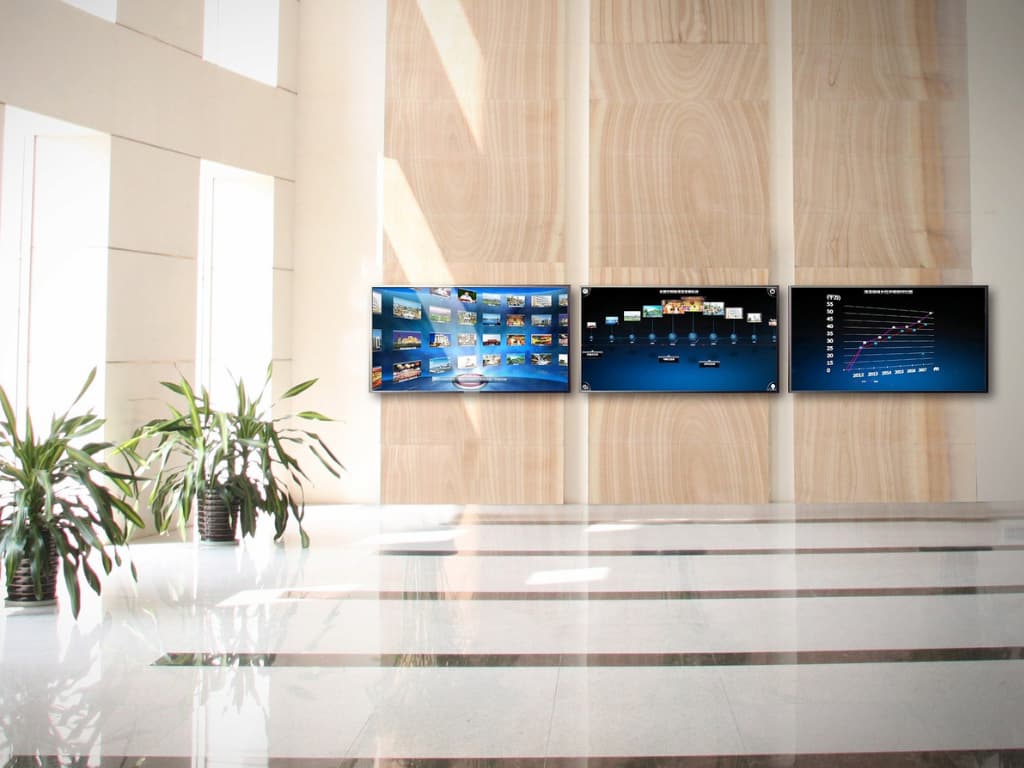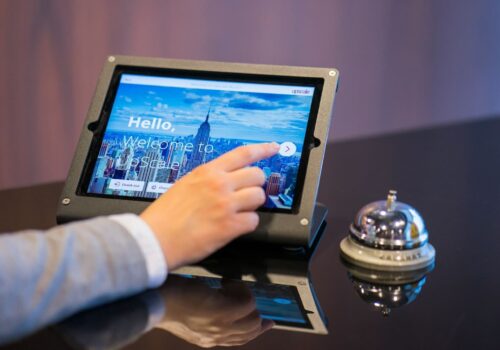5 Ways How Visitor Management Software Can Change Your Company
Visitor management systems have come a long way since their humble beginnings. In fact, the “modern office” would not be complete without a cloud or web-based visitor management system (VMS) in its tech stack. VMSs have come to play a large role in how organizations deliver unique, customized, and streamlined visitor experiences – and this blog serves to showcase some of the top five ways how visitor management software can impact a business.
Why Are VMSs Important for Modern Businesses?

Gone are the days when a steadfast front-desk team could handle the influx of daily visitors, guests, or clients to an office building. In the digital age, businesses are relying on automated, cloud-based software applications to streamline the way they interact with, manage, and track daily visitors or guests.
There are a few main reasons why VMSs are important for organizations:
- Increased employee and building safety procedures
- Optimized data compliance and security standards
- Ability to deliver modern, digital-first visitor experiences
- Costs savings
- Staff productivity boosts
In the sections below, we’ll go over each of these benefits and how they can effectively transform the way your organization operates (and deals with visitors).
Improved Building and Staff Safety
Nearly all modern VMS platforms provide the ability to serve as the first line of defense for your office building, facility, or other business location. You get to choose who is allowed in, which guests are not allowed to enter, which visitors can pre-register, etc. – if a visitor is not on the approved list or does not have the proper credentials, they will be denied entry.
Apart from this “gatekeeping” function, VMS applications also provide in-depth reporting and activity tracking functions, allowing businesses to store all relevant visitor details such as date of visit, time of visit, personal information, areas accessed, the purpose of the visit, and more. Digital logs enhance compliance and improve both physical and digital security standards.
Optimized Data Security and Building Security
We’ve already laid out the fact that modern VMS platforms serve as a digital “gatekeeper” for your organization, but their utility reaches far beyond visitor approval or denial. If the system is cloud-based or web-based, as most modern systems are, organizations will have access to all data points regarding a guest’s visit. This is extremely useful for two reasons:
- It makes data compliance and storage much easier compared to traditional methods
- The data can be stored locally or on the cloud – both of which have the capability to provide stringent security standards, tools, or programs for storage.
Apart from keeping personal and private data safe, cloud-based VMS platforms can also efficiently store important documents that were signed via the application such as compliance forms, non-disclosure agreements, COVID-19 questionnaires, or other important documents.
Digital Visitor Experiences for Next-Level Engagement
Customer experience is all the rage in the business world. In a post-COVID world, customer, visitor, and guest expectations have dramatically evolved from what they were in the past. Now, people expect brands, including your business, to deliver seamless, automated, and engaging digital experiences – a modern VMS can enable your company to not only meet these evolved set of expectations but exceed them.
The importance of being able to provide a modern, digital-first experience to guests, visitors, or anyone else interacting with your business should not be overlooked. Organizations across almost all industries are going “all in” on digital technology and solutions, and VMSs offer an excellent opportunity for businesses to deliver modern, engaging experiences.
Cost Savings
One of the dominant advantages of a modern VMS is the fact that it can cut costs on numerous levels. A great way to think of this is in terms of how many visitors a VMS can process daily – the number is dramatically higher than what a person, or even a team of people, would be able to perform. This is one way how VMSs can cut costs – by automating and streamlining the process of visitor arrival, registration, check-in, etc., the financial cost of processing each visitor is sharply reduced.
Staff Productivity
By freeing up staff to focus on things that really matter (and not wasting time checking in guests, finding documents for visitors to sign, etc.), employee productivity can increase which can directly translate to lowered operational costs.
Modern Visitor Management for Increased Efficiency
The biggest value add of deploying a cloud-based VMS platform is an increase in operational efficiency. When a business is more efficient, it makes more money, it reduces costs, and it has happier employees – and enables the other advantages listed above. If your business is still on the fence about deploying a VMS, we recommend performing additional research and looking into some industry case studies to see how impactful the technology can be on a business’s operations.




